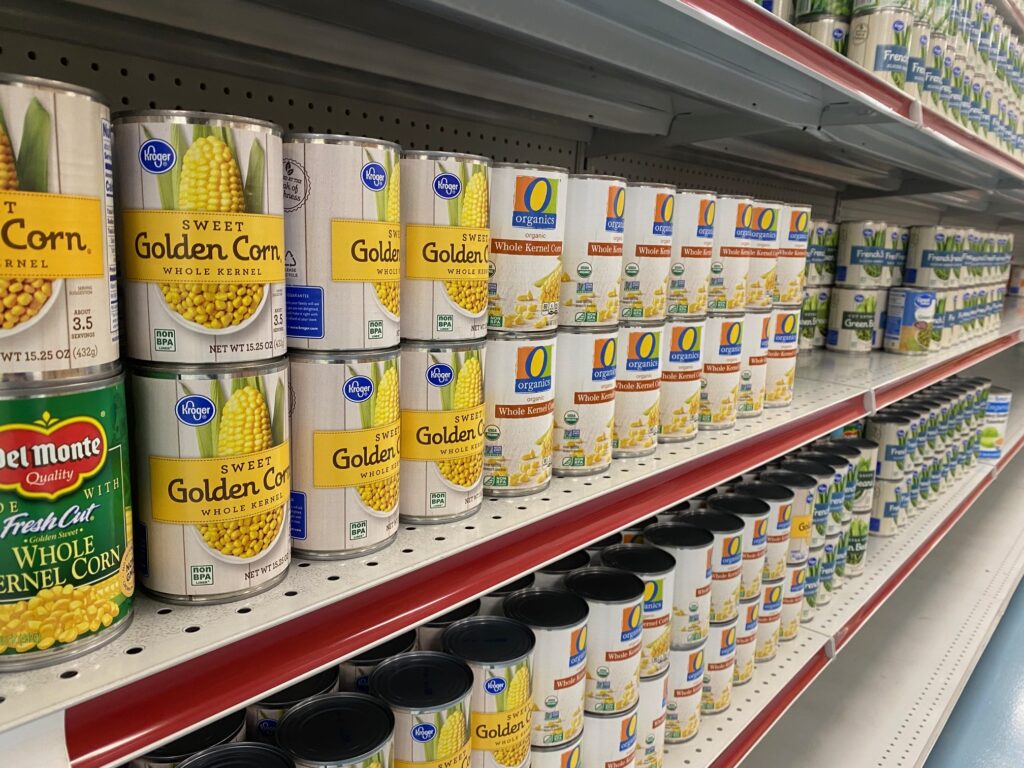A pair of bills before lawmakers would make systemic changes to the way the state’s food stamp program processes applications and could expand access to food aid for Alaskans.
The legislation comes after more than a year of extreme delays in food stamp distribution across the state that have left thousands of vulnerable Alaskans without aid for months at a time, which has driven many into debt and inundated food pantries with food insecure families.
Last year, Gov. Mike Dunleavy put roughly $60 million towards relief for the backlog through computer upgrades, contract workers, and food for the state’s overwhelmed food pantries. The problem has persisted, so this year the governor’s budget proposal would put another $8.8 million towards alleviating the burden of the backlog in processing food stamp applications through additions to staff and add $5 million for aid to food pantries.
The new legislation to make systemic changes was first introduced in the House last year, by Rep. Genevieve Mina, D-Anchorage, and in the Senate, by Sen. Cathy Giessel, R-Anchorage. House Bill 196 has been held in committee since last May.
But the Senate version, Senate Bill 149, received its first committee hearing on Tuesday. Giessel said the change would streamline administration and suggested it may help keep the state out of future backlogs. She acknowledged that it would come with costs, but reminded the Senate Health and Social Services Committee that the state is already paying millions to fix a problem it could be preventing.
“Not doing this will cost us millions, and will leave people without food,” she said.
The bill would change the way the Alaskans are authorized for the Supplemental Nutrition Assistance Program, known as food stamps or SNAP benefits, by implementing what is known as broad-based categorical eligibility. That means people who already qualify for other kinds of benefits could be automatically eligible for SNAP, which proponents say could reduce processing times. Alaska is currently among only nine states that do not use broad-based categorical eligibility.
It would also increase the amount of money Alaskans can make and still receive benefits and eliminate an asset requirement that prevented food aid recipients from accumulating more than $2,750 in savings. Hunger advocates say savings are important to breaking the cycle of poverty and getting Alaskans out of the program.
Food pantries and other food aid agencies across the state testified to the need for expanded access to the food stamp program. Ron Meehan, director of government affairs for Food Bank of Alaska, said his organization supports the legislation because no other program is as effective as SNAP in reducing hunger in the state.
“We’ve directly seen that when SNAP doesn’t work, Alaskans in need are turning to our network of food banks and food pantries that are already stretched thin. Food banks and food shelters continue to see just incredibly high levels of need at really record levels of use,” he said. “Simply put, this legislation will make the program work better.”
Eddy Ezell, from the Mat-Su Food Bank, said he used to see up to 100 patrons daily, but that number has risen up to about 150 patrons a day. He urged lawmakers to make the change.
Greg Meyer from the Kenai Peninsula Food Bank in Soldotna told legislators that the asset test often works against Alaskans trying to work their way out of poverty or food instability. He described how when family members gave a car to the recently employed mother in one family his organization works with, it put them over the asset limit and would have jeopardized their food benefit.
“That car put them over the top, so she ended up quitting her job. And I just feel like that’s counterproductive to the work that we’re trying to do,” he said.
Erin Walker-Tolles, director of Catholic Community Services in Juneau, said the bill would increase access to food assistance for vulnerable seniors like those her organization serves hot meals. She said her clients often have to choose between food and other expenses, like medication, heat or rent.
“It’s a smart choice, too, because this will save all communities money. Seniors who are better fed have less health issues, less emergency response, and less time in the hospital — that’s often picked up by social services, by the cost of the hospital, by the communities as a whole,” she said.
Walker-Tolles formerly directed the SNAP program, and said she knows the bill would be useful within the state Health Department as well as for citizens.
“It should save the state money, and help them work down the backlog. It is both smart and right to do,” she said.

